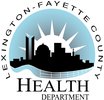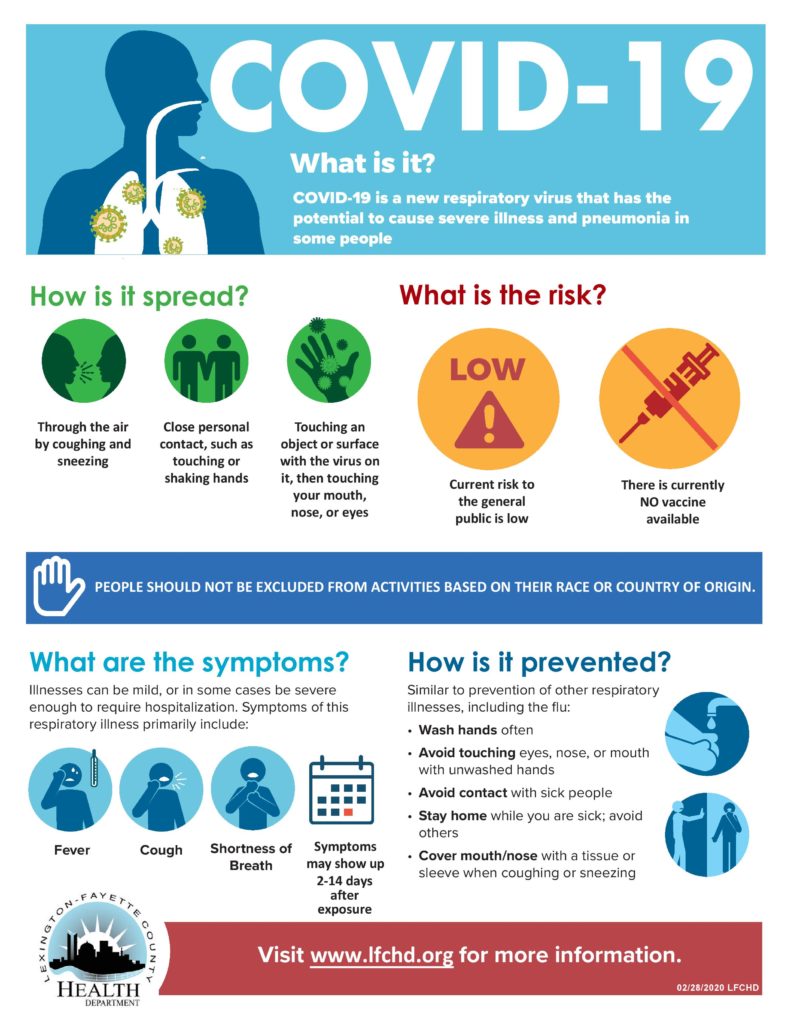MARCH 23, 2020: The first death related to COVID-19 (2019 novel coronavirus) in Lexington has been confirmed, Mayor Linda Gorton and Commissioner of Health Dr. Kraig Humbaugh reported today. The victim was a person in their 80s with underlying health conditions. Additional details about the person cannot be provided because of medical privacy laws.
“This is a sad day for our city and especially for the family and friends of this victim,” Mayor Gorton said. “Let’s all make sure our elderly neighbors are cared for and protected. And let’s do everything we can to slow down this virus.”
The Lexington-Fayette County Health Department now believes that sustained person-to-person spread of COVID-19 is occurring in Lexington because not all new cases can be connected to previous cases or to travel outside of the community. Although the number of cases is still low, cases are expected to increase. In order to slow transmission of COVID-19, persons should avoid any unnecessary contact with others and stay at home when sick. COVID-19 is thought to be primarily spread through close contact with those who are infected.
The following social distancing tips should be followed:
- Stay at home as much as possible.
- Make sure you have access to medications and supplies in case you are advised to stay home.
- When you go out in public, keep away from others who are sick, limit close contact and wash your hands often.
- Avoid crowds.
The health department offered these tips to continue to help prevent the spread of COVID-19:
- Wash your hands often with soap and water, especially after going to the bathroom; before eating; and after blowing your nose, coughing, or sneezing.
- Avoid close contact with people who are sick.
- Avoid touching your eyes, nose and mouth.
- Stay home when you are sick.
- Cover your cough or sneeze with a tissue, then throw the tissue in the trash.
- Clean and disinfect frequently touched objects and surfaces using a regular household cleaning spray or wipe.
- Practice social-distancing when at all possible.
COVID-19 is an emerging disease and the health department is staying up-to-date on the latest information.
To help answer the community’s questions about COVID-19, the Lexington-Fayette County Health Department is operating a call center for members of the public. Questions can be asked by calling (859) 899-2222 8 a.m.-4 p.m. daily or emailing COVID19@lfchd.org. Additional information, including frequently asked questions, can be found at lfchd.org and on the LFCHD social media accounts. Find us on Facebook at www.facebook.com/LFCHD, or follow us on Twitter at www.twitter.com/LFCHD and Instagram at @lexpublichealth.
The City is also providing updates on lexingtonky.gov. Click on COVID-19 information.

